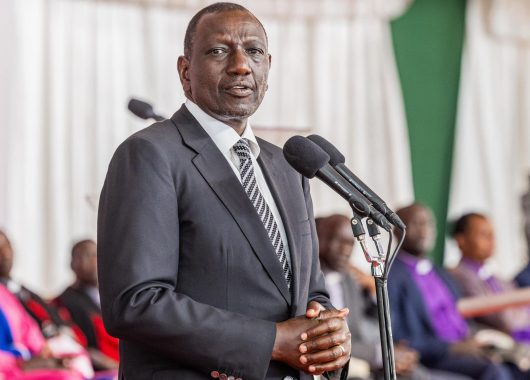Homa Bay Governor Gladys Wanga has firmly opposed calls to reinstate the National Health Insurance Fund (NHIF), despite growing concerns over inefficiencies in the newly introduced Social Health Authority (SHA).
Wanga has instead urged for reforms to address the gaps within SHA rather than reverting to the previous system.
SHA, which was launched on September 1, 2024, replaced NHIF in a bid to provide a more inclusive and equitable healthcare financing system.
However, the transition has been marred by significant challenges, leading the Rural and Urban Private Hospitals Association of Kenya (RUPHA) to suspend SHA services in February 2025 due to persistent operational hurdles.
Speaking during a television interview on Monday morning March 3, 2025, Wanga defended SHA, acknowledging its flaws but maintaining that it remains the best health coverage system Kenya has had.
“You know people say just say bring back NHIF but remember when we had NHIF only six per cent of Homa Bay people were able to actually access treatment, now you have 40 per cent of Homa Bay people able to access treatment.
“There was a lot of shenanigans at the back and you remember we had an inquiry on parliament about the amount of fictitious claims that were being laid out there. So if you ask me should we bring back NHIF, I would say a big no.

“If you ask me should we fix the gaps in SHA, which is reimbursement in time and system downtime, I would say a big yes. Please let’s fix the places where there are problem. And SHA by the way now is reimbursing every two weeks, giving some money. It’s only that the old debts, perhaps, are also not being serviced in good time and that’s why there is a problem,” Wanga said.
According to Wanga, SHA has already improved access to healthcare services in Homa Bay and across the country. She emphasized the importance of addressing inefficiencies rather than dismantling the program, citing progress in reimbursement timelines.
“[SHA] is a thumps up but fix the problems, fix the gaps. Any new system will have gaps, fix them. If you fix them, if you manage to fix them and communicate it, we will have the most revolutionary health system that we have ever looked for as a country. Just fix the system downtime and reimburse facilities whether they are faith-based, whether they are private, whether they are public, reimburse them on time,” she stated.
Wanga’s remarks come amid mounting pressure on the government to reassess SHA’s implementation.
However, President William Ruto remains steadfast in his commitment to the program, assuring Kenyans that, despite initial difficulties, SHA will ultimately succeed.

Speaking on Sunday during a church service at Jesus Winner Ministry in Roysambu on March 2, Ruto acknowledged the struggles but urged patience, emphasizing that previous attempts at Universal Health Coverage had failed.
“SHA is the biggest program we have in the Republic of Kenya. Maybe it will take time to be perfect, but believe me, it is going to work. We tried as Jubilee, but we failed. This time around, we will succeed,” Ruto said.
The president reiterated that SHA aims to ensure every Kenyan, regardless of financial background, has access to healthcare – a stark contrast to NHIF, which primarily served those in formal employment or with the means to pay.
As the debate over SHA’s effectiveness continues, Wanga’s stance underscores a broader national conversation: Should the country persist in refining its new healthcare system, or should it revert to a familiar but flawed model?
Martin Oduor
The alchemist of literary works – a master wordsmith with a proven record of transforming the raw materials of language into a rich tapestry of emotion, thought, and imagination.
View all posts by Martin Oduor